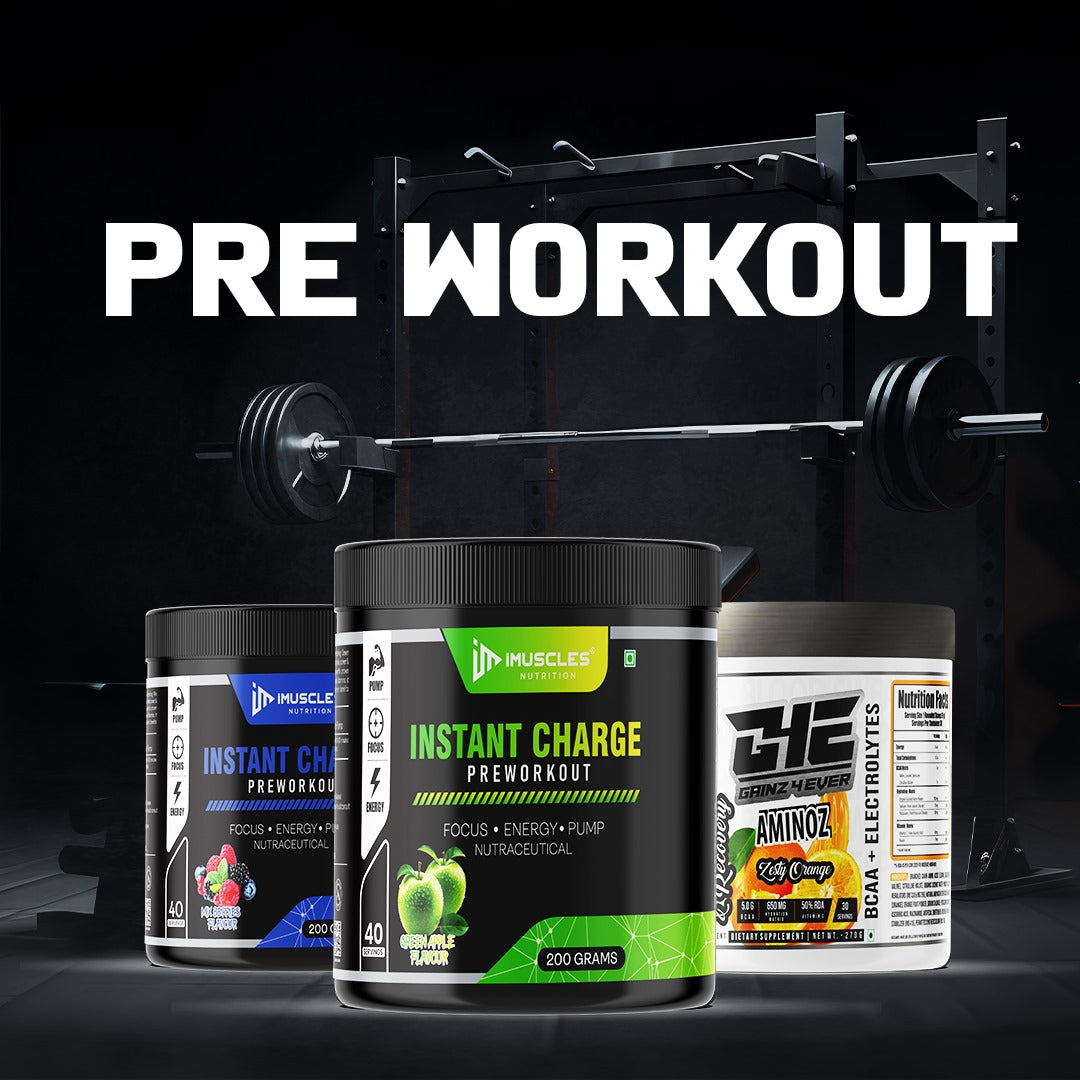
Do Fitness Influencers Know They’re Leading You Into a Workout Trap?
iMuscles NutritionDo Fitness Influencers Know They’re Leading You Into a Workout Trap?
Nowadays, fitness influencers are everywhere on social media. You see them flaunting perfect bodies, showing off crazy workout routines & sharing meal plans that supposedly lead to quick results. With millions of followers, they've become the go-to for fitness advice. They seem to have it all figured out—workouts, supplements, and diets for muscle gain or fat loss. But, behind those polished posts & inspiring captions, there's a side to this culture that’s not so great.
Ever thought that maybe the advice from these influencers might be trapping you? Could they be setting you up for failure, injury, or disappointment? The reality might surprise—and worry—you.
The Rise of the Fitness Influencer Phenomenon
The charm of fitness influencers is hard to ignore. They promise an easy path to your dream body. They look strong and confident, an ideal picture of health. Their posts mix motivational quotes, intense workout videos, and snapshots of their lives, making them relatable.
For lots of folks, these influencers fill a gap. Professional training is pricey; personal trainers and nutritionists aren’t cheap. So free plans from influencers seem like a sweet deal. But watch out—this world can be tricky and even risky.
The Problem with Cookie-Cutter Workouts
A huge issue is those generic workout plans many influencers push. They boast about these routines as their secret sauce for success. But here’s the kicker: not everyone’s body works the same way. Genetics, age, gender—all these affect how we respond to exercise.
Science says workouts should be customized. A study in the Journal of Sports Sciences shows people have different responses to the same routine because of genetic differences. Some build muscle fast while others barely see changes.
By pushing cookie-cutter plans, influencers often ignore fitness science's complexities. This leads to overtraining, burnout or injuries when you don’t get the same results they claim to get. It fosters a harmful mindset where you're made to feel you're not putting in enough effort if you don’t see results.
The Trap of Unrealistic Expectations
These perfect-looking transformations can set people up for a fall too. Influencers love sharing "before and after" pics that promise quick changes—even in weeks! While really inspiring at first glance, they can lead to huge letdowns.
Real transformations take time and consistency—building muscle or losing fat isn’t instant! Social media mainly shows dramatic changes without sharing all the struggles along the way.
Genetics also play a major role here—some folks gain muscle or lose fat way easier than others do. Influencers rarely talk about this part; they make it seem anyone can look like them if they follow their plan closely enough—which isn’t always true! This endless cycle often leads followers into believing they are failing when in fact their bodies just work differently.
Supplement Endorsements: Are They Necessary or Just Marketing?
Influencers also push tons of supplements—from pre-workouts to protein powders & vitamins—it seems like no routine is complete without them! But do we really need all these? Or is it just smart marketing?
Truth is some supplements help performance & recovery but most aren’t essential for regular gym-goers according to a study in International Journal of Sport Nutrition and Exercise Metabolism—most needs can be met with balanced meals alone!
Sadly many influencers get paid commissions or sponsorships from supplement companies which skews their advice—a reminder that no product trumps real nutrition & proper practices!
Overemphasis on Aesthetics Over Health
Another concern here is focusing more on looks than actual health. Scroll through any fitness page—lots highlight abs or toned arms but often skip mentioning health benefits like improved well-being or reduced disease risk.
A 2019 study in Frontiers in Psychology found social media exposure (especially fitness pages) can cause body dissatisfaction leading some folks into extreme dieting or overexercising routines!
This makes fitness less about feeling good & more about punishing yourself for not fitting an image—completely opposite what true fitness should be!
The Role of Fake or Misleading Claims
Some influencers don’t even realize they’re trapping people—they aren’t certified trainers/nutritionists but share personal tips which doesn’t always translate into scientific advice!
Worse yet are those making misleading claims just for more followers/sales—from ineffective routines to dodgy supplement claims—all heightened by lack of industry regulation making truth hard to find!
There’s also ‘fake natties,' who lie about being natural while using performance-enhancing drugs promoting unsustainable workouts leaving followers stuck feeling inadequate when results don't match!
How to Avoid Falling Into the Trap:
So how do we dodge these traps?
Do Your Research: Check science before following plans/supplements! Make sure influencer credentials hold up!
Prioritize Health Over Looks: Focus on feelings not just looks—remember fitness enhances life!
Set Realistic Expectations: Know progress takes time; different genotypes mean different paths!
Be Skeptical About Supplements: Verify recommendations carefully; consult health providers if needed!
Listen To Your Body: Modify routines if needed recognizing every individual’s uniqueness.
Conclusion: The Need For Transparency:
Influencers shape many views on exercise/nutrition/health but sometimes harm unintentionally with unrealistic goals promoting bad habits prioritizing appearance over genuine well-being.
It’s crucial approaching influencers critically digging deeper into authenticity aiming towards longer-term sustainable scientifically backed practices honoring individual health needs!

